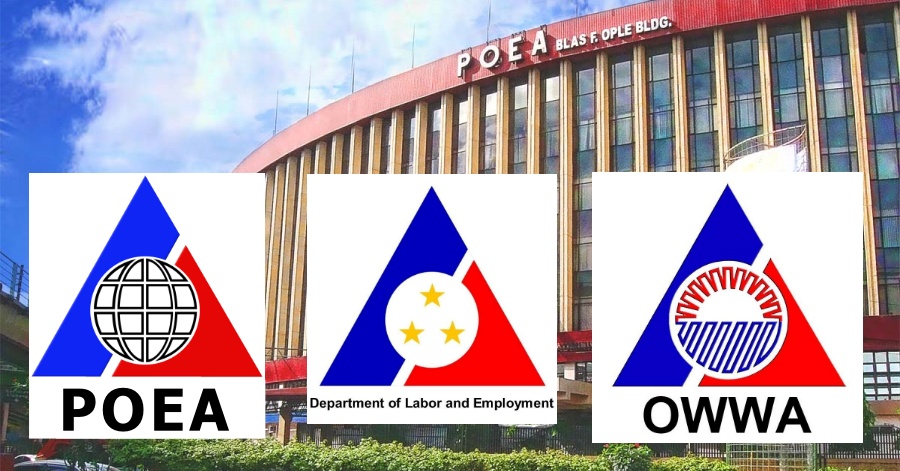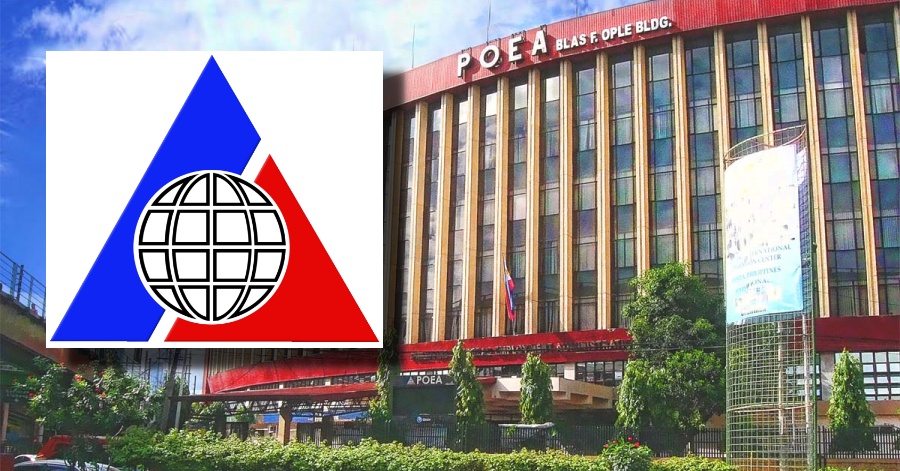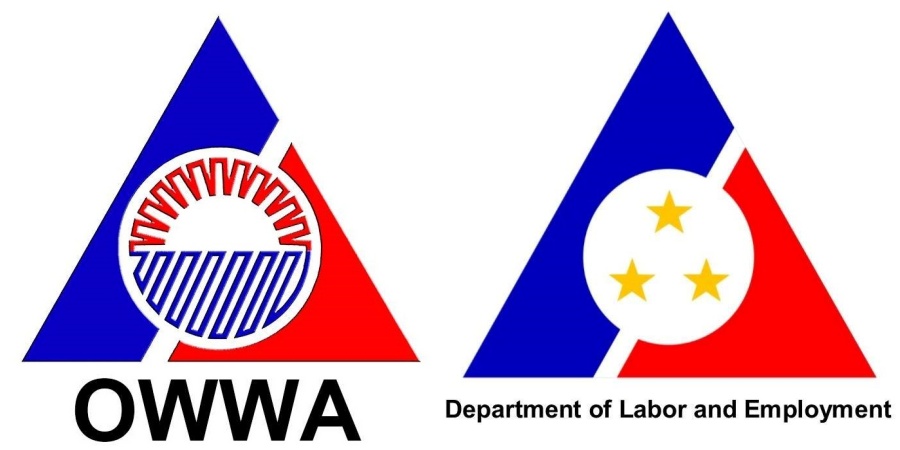If you are an Overseas Filipino Worker (OFW) or if you are planning to be one, there are certain government agencies that you should know about. Each of these agencies plays a role in the hiring, processing, training, assistance, and eventually reintegration of our kababayans.
The following article features the Philippine Overseas Employment Administration (POEA), Department of Labor and Employment (DOLE), Overseas Workers Welfare Administration (OWWA), and Philippine Overseas Labor Office (POLO). Specifically, we will be discussing their major roles and functions pertaining to OFWs as well as their families/dependents.

Know the Differences Between These Government Agencies
By learning about the functions, programs, and services of each agency — we will also be able to tell the differences among them — along with the important roles they play in the welfare and development of OFWs and their families.
Philippine Overseas Employment Administration (POEA)
The Philippine Overseas Employment Administration (POEA) is the main government agency that is in charge of monitoring and supervising overseas recruitment agencies. With a head office based in Manila, it is also involved in the deployment and protection of OFWs.
The core functions of this agency are as follows:
- Industry Regulation. The POEA issues licenses to recruitment and manning agencies involved in the hiring, processing, and deployment of land-based and sea-based OFWs. It hears and arbitrates cases filed against recruitment agencies, employers, and overseas workers. The agency also monitors job ads published on print, broadcast, and other media.
- Employment Facilitation. The agency approves manpower requests from foreign employers, evaluates and processes job contracts, assists in the departure of OFWs, and other roles. As for government-to-government agreements, it also facilitates in OFW deployment.
- Worker’s Protection. The POEA conducts pre-employment orientation seminars for OFWs. It provides legal assistance for victims of illegal recruitment, and repatriation assistance as well. The agency also plays a role in the drafting of bilateral and multilateral agreements.
- General Administration and Support. The POEA is involved in human resources development, plan and policy development, information and communication technology, financial management, quality management system, and other services with regard to OFWs.

Department of Labor and Employment (DOLE)
The Department of Labor Employment (DOLE) is an executive department of the Philippine government. It is in charge of formulating policies, implementing programs and services, and serving as the government’s policy-coordinating arm in the field of labor and employment.
The vision of DOLE is for “every Filipino worker to attain full, decent, and productive employment.” Correspondingly, its mission is to develop human resources, promote job opportunities, and protect workers as well as promote their welfare.
The core programs of this agency are as follows:
- Employment Facilitation. The DOLE conducts programs such as the Special Program for the Employment of Students (SPES) for young Filipinos, and the JobStart Philippines Program, which is a job search assistance program for working-age Filipinos.
- Employment Preservation and Regulation. The agency is involved in labor laws compliance, tripartism, social dialogue, development and empowerment of workers’ organizations, among other functions. It also takes part in case management, particularly through Project SpeED (Speedy and Efficient Delivery of Labor Justice) and other programs.
- Livelihood and Emergency Employment. The DOLE plays a major role in welfare services, verification of overseas employment documents, emergency repatriation, and reintegration of OFWs.
To carry out its specific functions, the DOLE overseas several bureaus: Bureau of Local Employment (BLE), Bureau of Labor Relations (BLR), Bureau of Working Conditions (BWC), Bureau of Workers with Special Concerns (BWSC), International Labor Affairs Bureau (ILAB), and National Reintegration Center for OFWs (NRCO).
In addition, the DOLE works hand-in-hand with several “attached agencies,” namely: Employees’ Compensation Commission (ECC), Institute for Labor Studies (ILS), National Conciliation and Mediation Board (NCMB), National Labor Relations Commission (NLRC), National Maritime Polytechnic (NMP), National Wages and Productivity Commission (NWPC), Occupational Safety and Health Center (OSHC), Overseas Workers Welfare Administration (OWWA), Philippine Overseas Employment Administration (POEA), Professional Regulation Commission (PRC), and Technical Education and Skills Development Authority (TESDA).
Notably, the current Secretary of Labor Employment is Silvestro Bello III, who took up the role on June 30, 2016. As head of DOLE, he is also a member of the President’s Cabinet.
Overseas Workers Welfare Administration (OWWA)
The Overseas Workers Welfare Administration (OWWA) is an agency of DOLE. Its main role is to protect the interests of OFWs and their families. Established in 1977, it was initially called the Welfare and Training Fund for Overseas Workers.
The OWWA head office is in Pasay City, Metro Manila. OWWA has regional offices all over the Philippines, as well as overseas offices in 27 countries worldwide. Its programs and services include: conduct of Pre-Departure Orientation Seminars (PDOS), social benefits, education and training, welfare, legal assistance, repatriation, and reintegration of OFWs.
An OFW becomes a member of OWWA upon the processing of his/her employment contract at POEA. Filipinos who are already working abroad may also opt to register voluntarily. A contribution fee of USD 25 entitles OWWA members to various benefits and services.
Here are some of the agency’s social benefits, educational programs, and other services:
- Disability and Dismemberment Benefit. This includes PHP 50,000 for partial disability and PHP 100,000 in cases of total permanent disability.
- Death Benefit. An active member of OWWA is covered throughout the duration of his/her job contract. The benefit includes PHP 200,000 for accidental death and PHP 100,000 for death due to natural causes.
- Burial Benefit. In addition to the death benefit, PHP 20,000 will be given to the OFW’s dependents, to help with funeral expenses.
- Education for Development Scholarship Program (EDSP). This is a scholarship program for qualified dependents of member OFWs. It includes educational assistance up to PHP 60,000 per school year for a four/five-year course in any college or university.
- OFW Dependents Scholarship Program (OFW DSP). This is a scholarship program for dependents of OFWs whose salaries are not more than USD 400 per month. It includes educational assistance up to PHP 20,000 per school year, leading to a baccalaureate or associate degree in a state college or university.
- Skills-for-Employment Scholarship Program (SESP). This is a scholarship program for OFWs or dependents who would like to enhance their technical and vocational skills. It includes educational assistance up to PHP 14,500 per course in any TESDA-accredited school.
- Seafarer’s Upgrading Program (SUP). Specifically designed for Filipino seafarers to upgrade their skills, this program provides training assistance up to PHP 7,500 per course. It may be availed again after every three (3) recorded OWWA membership contributions.
- Education and Livelihood Assistance Program (ELAP). This program provides educational assistance for the dependents of a deceased OFW, specifically PHP 5,000 for elementary, PHP 8,000 for high school, and PHP 10,000 for college per school year. It also provides livelihood assistance worth PHP 15,000 to the surviving spouse of the OFW.
- Reintegration Program. This is a program that aims to bring distressed OFWs back to the Philippines. It includes airport assistance, temporary shelter at the OWWA Halfway House, and provisions for travel back to the OFW’s home province.
- Reintegration Program. This program includes two components: the economic component, which includes skills training and credit facilitation for livelihood projects; and the psycho-social component, which includes counseling, stress debriefing, values formation, and more.

Philippine Overseas Labor Office (POLO)
The Philippine Overseas Labor Office (POLO) serves as the overseas operating arm of DOLE in implementing labor policies and programs, as well as protecting the rights and welfare of Filipinos abroad. In other words, it is the DOLE’s “direct link” to the world.
The core functions of this agency include:
- Protection of rights and promotion of the welfare and interests of OFWs;
- Verification of job contracts and other employment-related documents;
- Monitoring of situations and policies in the host country that may affect OFWs; and
- Engagement in socio-cultural activities organized by the Philippine government, the host country, Filipino organizations, and other entities.
There are currently 34 POLOs around the world, with offices across Asia and the Pacific, Middle East and Africa, Europe, and the Americas. Each office is headed by a Labor Attaché.
DOLE vs. POEA
Now that we know a little bit more about each agency, let us try to understand how they differ among each other. For instance, the DOLE’s and POEA’s roles may overlap in terms of employment facilitation, worker’s protection, repatriation assistance, and reintegration.
However, the main difference would be that DOLE is concerned with workers both inside and outside the Philippines, whereas the POEA is focused on overseas workers only. Moreover, the POEA is described as an “attached agency” of DOLE, which means that it carries out labor-related programs that are designed for OFWs.
OWWA vs. POLO
The difference between OWWA and POLO is a little less distinct. Both agencies are attached/connected with DOLE, and both are concerned with protecting the rights and welfare of OFWs. So how can we tell the difference between them?
Perhaps the main distinction lies in the “focus” of each agency. While OWWA is a membership fund institution that focuses on delivering social benefits and programs, POLO is more focused on the implementation of labor policies and serving as the “overseas operating arm” of DOLE outside the Philippines.
In any case, despite all their differences and overlapping functions, it can be noted that all of these agencies – POEA, DOLE, OWWA, and POLO – are concerned with protecting the rights and welfare of OFWs. The mere existence of these agencies — both inside and outside the Philippines — assures us that wherever we may be in the world, we can look to them for guidance, service, and assistance.
DISCLAIMER: The details above are presented for general information-sharing purposes only. To learn more about each agency, please visit the official websites of the Philippine Overseas Employment Administration (POEA), Department of Labor and Employment (DOLE), and Overseas Workers Welfare Administration (OWWA).